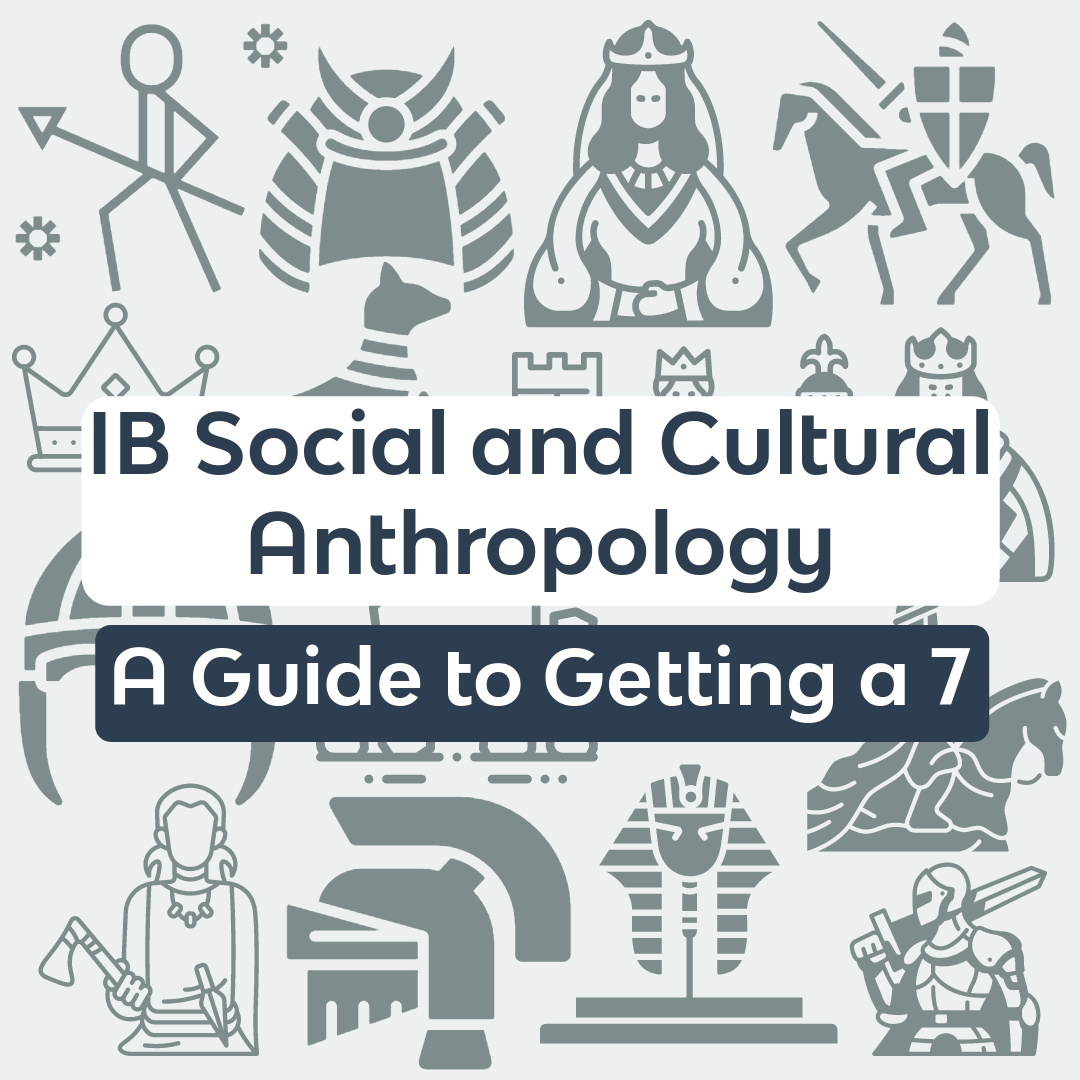Jan 18, 2024
By: Sophie
Everything You Need to Get a 7 on IB Social and Cultural Anthropology
Hey there! This article is all about our tips for how to study for the IB Social and Cultural Anthropology exam to get a solid 7. I'll break down the tricks, so with the right strategies and resources, nailing the exam is totally doable!
Free IB Social and Cultural Anthropology Resources!!
Hey, no worries if you're in a last-minute cramming session for IB Social and Cultural Anthropology! We totally get it, and trust me, we've all been there too! So, if you're wondering how to ace the IB Social and Cultural Anthropology exam when you're running out of time, here are some awesome resources and IB Social and Cultural Anthropology exam tips created by fellow students that will help you cram like a boss.
This ULTIMATE IB Social and Cultural Anthropology Study Guide - pretty much everything you need to know for the exam, written by a former IB Social and Cultural Anthropology student!
Our Favorite Additional Site for IB Social and Cultural Anthropology
What do I Need to Memorize for the IB Social and Cultural Anthropology exam?
The exam is broken down into THREE assessments - here is a breakdown of what you’ll need to know and what to expect from each section:
Paper 1, Engaging with Anthropology, is an important part of the exam for both SL and HL students. For SL students, you’ll have one hour to complete it, while HL students have 1 hour and 30 minutes. The paper consists of a series of structured questions, which include both short-answer and extended-response types. These questions are designed to assess your understanding and analytical skills in anthropology. They will challenge you to apply anthropological theories and concepts to specific scenarios, analyze data or case studies, and critically evaluate different anthropological perspectives. The key to success in this paper is a thorough understanding of anthropological concepts and the ability to apply them effectively in various contexts.
For Paper 1 in the IB Anthropology exam, focus on the key topics outlined by the IB. Understand anthropological theories and concepts, and be prepared to apply them to different contexts. Practice with past papers, paying attention to how questions are structured. Manage your time effectively, ensuring you can answer all questions. Even if unsure, attempt every question for potential points. Organize your answers clearly, and remember, staying calm and focused during the exam is crucial for showcasing your understanding in an engaging way.
Paper 2 in the IB Anthropology exam, known as "Engaging with Ethnography," is a cool test of your ability to think on the spot. For SL students, you have 1 hour, and HL students get 1 hour 30 minutes. You'll be given unseen texts and will need to connect anthropology ideas to these new scenarios. It's like being a detective, where you use your anthropology knowledge to solve new puzzles. The questions vary, including some short ones and others that need more detailed answers. HL students also get a special question about ethics in anthropology, adding an extra twist!
For Paper 2 in the IB Anthropology exam, you have to be REALLY good at analyzing unseen texts. This means you should practice analyzing various ethnographic and cultural materials that you’ve learned in the course. Familiarize yourself with different anthropological concepts and how they can be applied in real-world contexts. That will be the key to getting a 7! Keeping an eye on the clock is crucial as well, as well as making your answers structured and cohesive. Don’t skip any problems even if you are not sure, you could be missing out on points! Stay calm and focused, and remember to consider ethical aspects, especially for HL students. This paper tests your ability to think critically and apply anthropological thinking in new situations.
For the fieldwork section of the IB Anthropology exam, SL students engage in limited fieldwork involving observation, secondary data collection, and critical reflection. HL students are expected to conduct more extensive fieldwork. This part of the course allows you to become a real anthropologist, exploring and understanding different cultures and societies through direct research. It's a hands-on experience where you collect data, analyze it, and reflect critically on your findings. This fieldwork is a fantastic opportunity to apply what you've learned in class to real-world situations.
For the fieldwork component of the IB Anthropology exam, focus on applying anthropological methods in real-world research. For SL students, engage in limited fieldwork, using observation and secondary data collection. HL students should conduct more extensive fieldwork. Practice organizing and analyzing your data, and develop a reflective approach to your findings. This component is about bringing your classroom learning into the field, demonstrating practical skills in gathering and interpreting anthropological data. Remember, fieldwork is your opportunity to explore anthropology hands-on and showcase your research abilities.
How Should I Study for the IB Social and Cultural Anthropology Exam?
Studying for the IB Social and Cultural Anthropology exam involves a mix of strategic preparation and engaging with the material. Start by thoroughly understanding anthropological theories and concepts; they're the backbone of the course. Create detailed notes, flashcards, or mind maps to visualize and connect ideas. Then, dive into ethnographies and case studies. They're not just texts; they're windows into diverse cultures and societies. Discuss these with classmates to broaden your perspective and deepen your understanding.
Practice is key, especially with past papers. They help you get used to the format and types of questions you'll face. For the fieldwork component, reflect on your own experiences, and learn how to analyze and interpret data effectively. Remember, this exam isn't just about memorizing facts; it's about understanding and applying anthropological insights to the world around you. Keep your study sessions lively and interactive to maintain interest and enhance retention.
